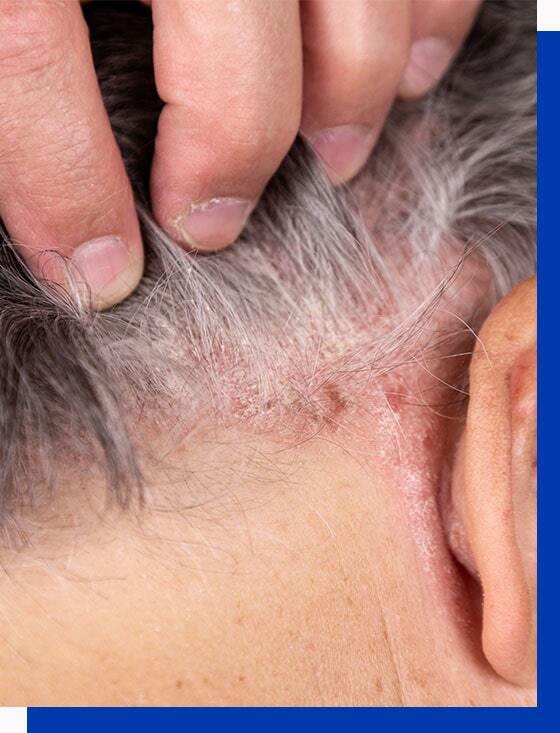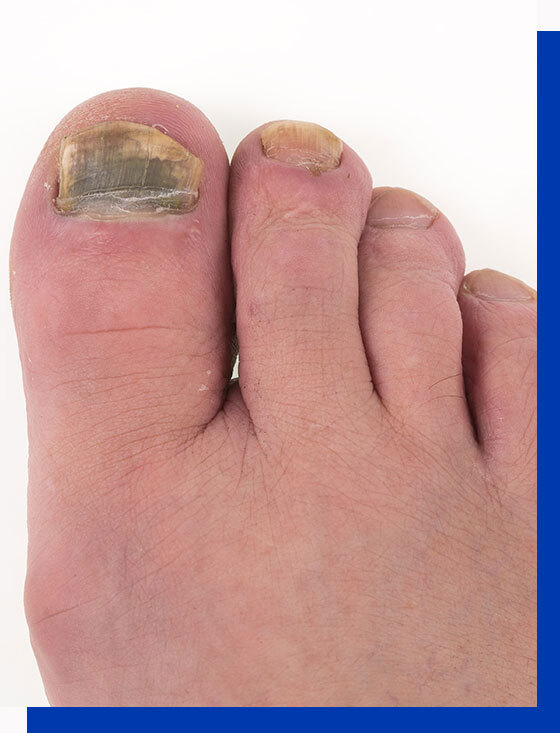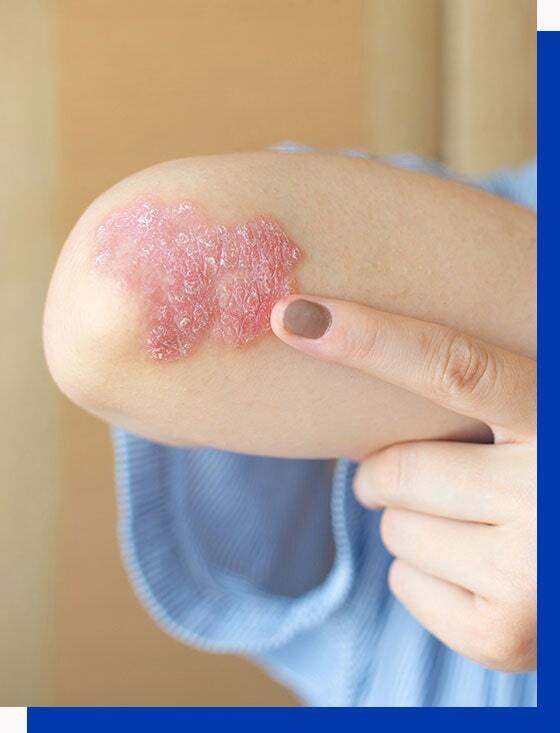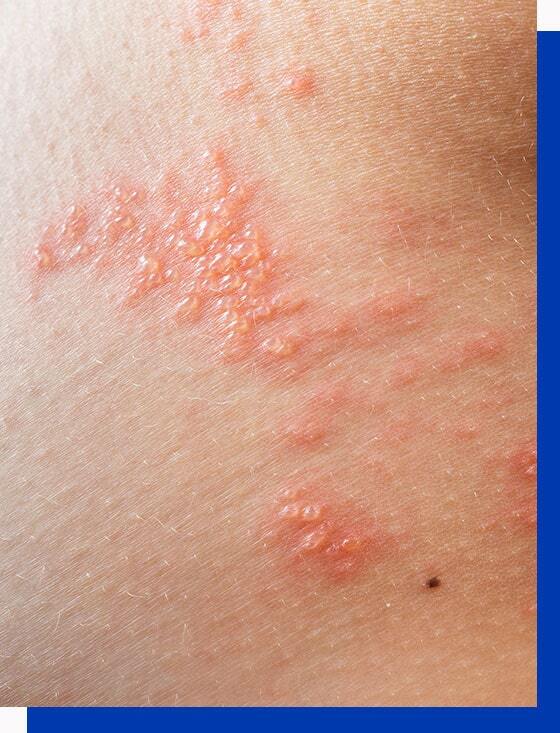What is Psoriasis?
Psoriasis is a skin condition that causes red, itchy scaly patches on the knees, elbows, trunk, and scalp, among other places.
Psoriasis is a long-term (chronic) disorder with no cure. It comes and goes in cycles, with flare-ups lasting a few weeks or months before subsiding or going into remission.
Psoriasis usually appears in early adulthood. For most people, it just affects a few regions. In severe circumstances, psoriasis can cover large parts of body. At any point in a person's life, the patches can heal and return.
There are treatments available to assist you in managing your symptoms. You can also use lifestyle habits and coping skills to improve your psoriasis-related quality of life.
DoctorHelpMySkin is your one-stop solution for any kind of psoriasis. With us, you can be assured to get the best treatment for skin & scalp psoriasis.
Types of Psoriasis
Prevention of Psoriasis

Prevent skin injuries
Skin injuries can cause psoriasis lesions to appear in parts of the body where they are not normally seen. The Koebner phenomenon describes this aspect of psoriasis and generally requires a specialist to deal with it.
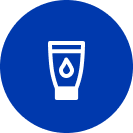
Keep Skin Moisturized
Keeping the skin hydrated is important to prevent psoriasis of every kind. Psoriasis flare-ups can potentially be triggered by dry skin. It can also exacerbate skin scaling, causing the skin to crack and bleed.

Keep Scalp Moisturized
People with psoriasis on their scalp can help prevent flare-ups by moisturizing the skin on this portion of their body. In case you notice dry scalp, dandruff, or other symptoms. Get the best treatment for scalp psoriasis with us.

Use a humidifier
A home humidifier can help people with psoriasis keep their skin moist and lessen symptoms. Especially useful in winter when air is chilled and dry. Make sure to take proper care of skin during winters to prevent psoriasis.

Improve the diet
Psoriasis flare-ups can be triggered certain foods, which may differ. Salmon and other anti-inflammatory foods can help alleviate psoriasis symptoms. For Severe conditions get the best treatment for skin & scalp psoriasis.

Reduce stress
For many psoriasis, stress can be a potential trigger. Most common in adults and may require certain changes in lifestyle. Get consultation from our veteran specialists to make the right lifestyle changes.
How DoctorhelpMySkin can help you?
If you suspect psoriasis, seek a diagnosis from a doctor. A physical exam is usually enough to confirm the condition. Sometimes a biopsy will be necessary. If you're looking for a quick diagnosis, upload photos and a description of your symptoms to Dr. Help My Skin for the best treatment for skin & scalp psoriasis, and within 24 hours you’ll receive a reply.
Because psoriasis is an autoimmune condition, there is no complete cure. Monitor your skin and record any flare-ups, noting possible triggers. Common triggers include: stress, illness, especially strep throat, weather, alcohol, skin injury, or sunburn.
Topical treatments can help relieve symptoms. You might use: steroid creams, moisturizers, coal tar, vitamin D creams, or ointments.
There are other treatment options for psoriasis as well. Your doctor may prescribe medicine for a short period of time if topical treatments aren’t helping. Another common treatment is light therapy, which uses UVA or UVB light to prevent the rapid growth of skin cells.
